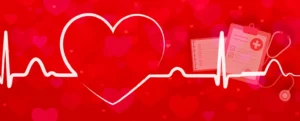Visit an Emergency Room Instead of Urgent Care Clinic : Heart Problems
Heart pain can feel like intense pressure or squeezing, but other symptoms may include shortness of breath, nausea, vomiting, sweating and palpitations. For example, an arrhythmia called atrial fibrillation (AFib) is commonly called A-fib for short. AFib can make your heart beat irregularly, which puts you at risk for stroke and other conditions that may require emergency medical care. Depending on what’s causing it and how severe it is, you may need tests like a CT scan or an echocardiogram (an ultrasound of your heart). An electrocardiogram (ECG) can also tell us if AFib is present.
You should head to an emergency room if you experience any of these symptoms: chest pain, shortness of breath, arm or jaw pain, leg or foot pain. If you are having a heart attack, it’s important that you get treatment right away before permanent damage occurs. Symptoms of a heart attack include chest discomfort; extreme fatigue; indigestion; sweating and nausea. However, don’t assume these mean it’s time for an ER visit—they could just be caused by stress or illness. Always call your doctor before making a trip to an emergency room if you think your symptoms are life-threatening.
The heart is in charge of circulating blood throughout your body, keeping it oxygenated and delivering nutrients. If something goes wrong with your heart, it could result in a wide range of symptoms, including pain or pressure on your chest, feeling short of breath, nausea or fatigue. The most serious symptom is chest pain that you can’t ease with any medication. A heart attack happens when arteries that supply blood to your heart become blocked by fatty buildup called plaque. If you experience sudden chest pain that feels like pressure or squeezing – whether radiating down your left arm or not – immediately call 911 and proceed to a hospital emergency room for treatment.




